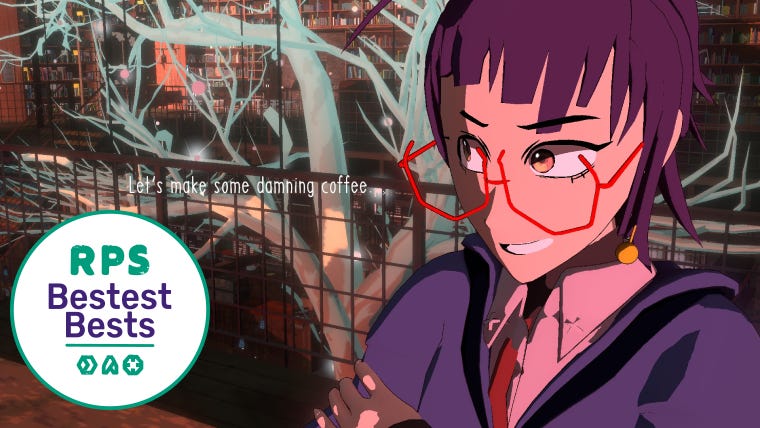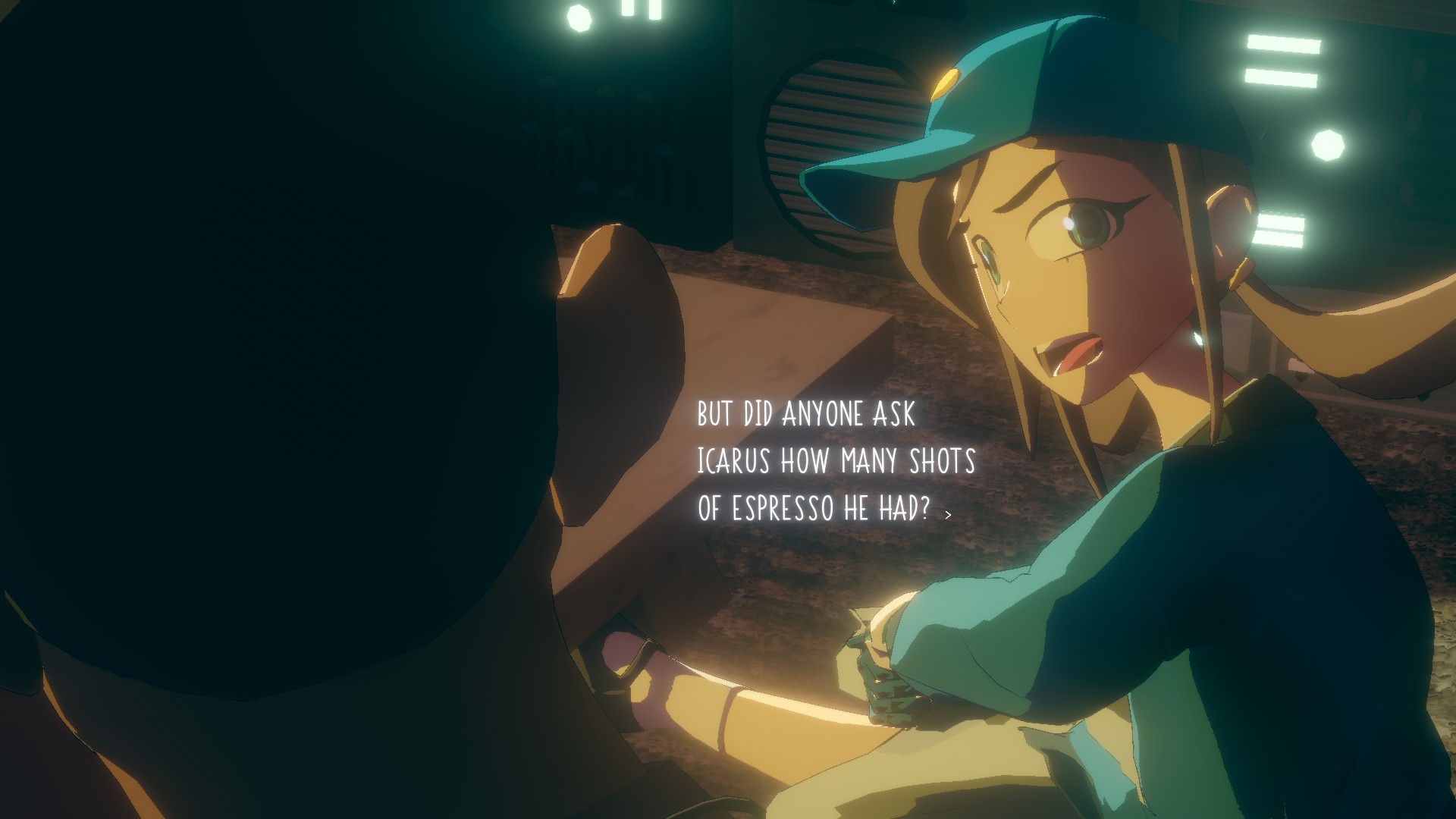Necrobarista review
Ordering up a nice steaming cuppa feelings
I’ve had the luxury of a few days to sit with my thoughts on Necrobarista before having to tell you wot I think, and wot I think is this: the game tricked me in the best possible way. Of course it’s a game about death, it’s set in a café that predominantly serves the recently deceased. Many of its characters are wrestling with their own mortality, some after already having kicked the bucket. But it soaks the player in such warmth and charm and humour that it managed to entirely bypassed my anxiety on the topic without shying away from addressing it properly.
Necrobarista is primarily a linear visual novel; aside from unlocking side stories during intermissions between chapters, you don’t have a lot of control over the plot. It opens in media res, on a ritual undertaken by the necrobarista herself, Maddy. It’s a stylish introduction to the world (and its incredibly cool music), before we cut back to a few days earlier. The Terminal café has a new patron, the recently deceased Kishan, and Maddy lays down the rules: 24 hours to adjust to being dead, and then onto the next thing, whatever that may be.
That’s the game’s backstory. Here’s mine: for the past year I’ve been in cancer remission, which I always have to immediately caveat is less scary than it sounds because it was a very unthreatening form of cancer, but still, it involves spending a lot of time in hospitals playing a particularly unfun game of Schrödinger’s cat where there’s always the small chance your own body has become the lethal box. It also involves an inordinate amount of waiting around, and a lot of coming into contact with people much sicker than you, which combined with having an anxious runaway minecart of a brain, often becomes a whole lot of thinking about dying. Usually, it sucks.
Which is why I’m surprised that Necrobarista tricked me into thinking about dying some more, in a way that both flew under the radar and, in hindsight, feels like it was actually productive.
This is accomplished through the game’s phenomenal writing. It doesn’t gawk at death, never even raising what befell Kishan. But neither does it gloss over the fact that he is struggling to come to terms with this new state of affairs. His reactions feel genuine: he has panic attacks, gets drunk, and asks a million questions.
But all the characters feel genuine, even when they’re not preoccupied with their own deaths. Maddy’s overtired grouchiness, the hyperactivity of 13-year-old robot tinkerer Ashley, and the mysterious but mentorly Chay are all excellent, and the dynamics between characters feel like the established patter of good pals. It makes both the jokes and the more serious moments feel like they arise naturally, as they do in real conversations.
The pacing of these helps, too. Dialogue will sometimes take a hard turn away from banter, like in one memorable moment where mostly-comic-relief-character Ashley opens up about the pressure she feels to be the best. But it never feels jarring; more like it’s been a long time coming. They also always manage to bounce back without being weighed down, while not letting that cheapen the moment.
And it’s not just the pacing of the conversations, but the overall structure of the thing that helps its themes go down more easily. It only lasts for three or four hours, which certainly helps it to not get bogged down, and it’s split into many short chapters. The bulk of the game is straightforward reading, but it’s far less static than most visual novels, with camera angles constantly changing as if to better show off the game’s fantastic art, and text appearing all over the shop with a flowing pace, pausing and continuing to indicate the speaker’s cadence.
The intermissions are different, though, beginning with a small interlude featuring three of the robots Ashley’s created discussing the preceding events. I couldn’t tell you how three sentient beings made of glued together trash also manage to walk the line between humorous, heart warming, and thought-provoking, but they pull it off.
After the robots have chatted a bit, you get a screen full of words highlighted in the preceding chapter. (You can click on those words while reading for a little aside, but it often feels distracting to do so.) You pick seven of them to exchange for tokens in different categories relating to the game, like “death,” “Maddy,” and “Melbourne.” (It’s a game that’s very proud of its Australian setting.) Then you get to walk around the café in first person, exploring some of its stranger areas and interacting with some items to switch tokens for side stories that took place in the café at other times.
They’re also excellently written, but you can’t unlock them all, and there’s not an easy way to tell what tokens you’ll need in advance, so they’re really just a bonus. But their inclusion, along with the rest of these intermissions, lightens up the main plot, giving it room to breathe and preventing it from becoming overwhelming.
I’ve skirted around that plot a little because I don’t want to get into spoilers, but having had time to reflect it’s the arcs of two characters in particular that work so well. Both are dealing with their own deaths, coming at it from very different angles, and end up with almost diametrically opposed endings.
In short, Necrobarista realises that there are no objectively correct answers to the questions it raises about mortality, loss, and how to live a good life. In giving these two characters their different resolutions without presenting either as better than the other, it manages to acknowledge that while simultaneously giving both a satisfying conclusion. Landing a fulfilling ending is a tricky thing for any story to accomplish; to do it while offering up meaningful thoughts about an extremely difficult topic while feeling neither overbearing nor flippant is incredible.
The most perfect example of everything I’m trying to say here is this: Necrobarista ends on a pun. And that pun made me cry.









